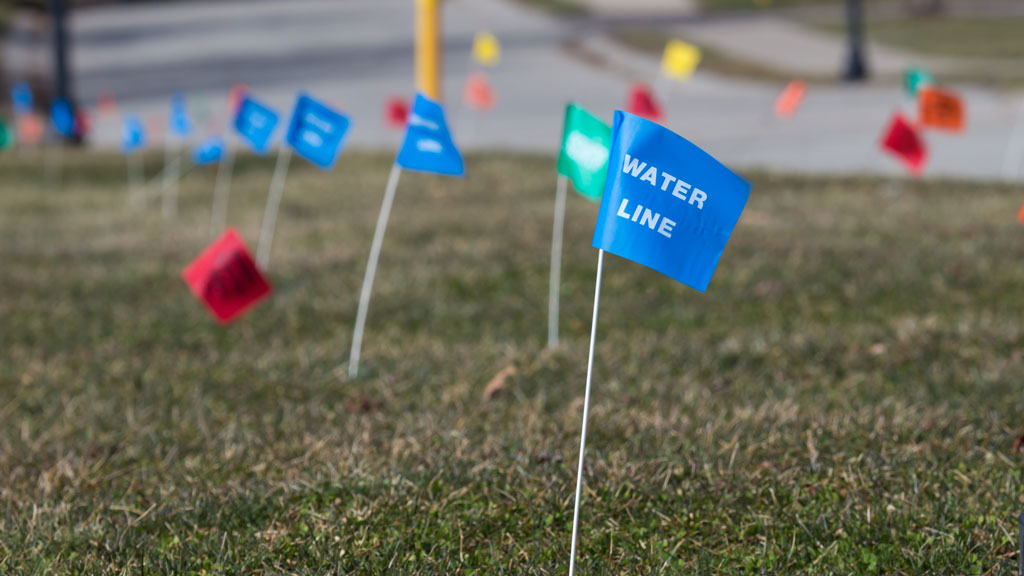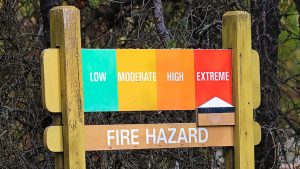The Residential and Civil Construction Alliance of Ontario (RCCAO) and the Ontario Sewer and Watermain Construction Association (OSWCA) support many aspects of Bill 93, the Getting Ontario Connected Act, but say there are more things that can be done to improve the timely delivery of utility locates.
“The (proposed) bill is really a significant piece of legislation because what it does is provide necessary and long-awaited reform to the Ontario One Call utility locate systems and processes. It really serves as an important step towards meaningful improvement to the system that has really caused considerable difficulty for industry,” said Nadia Todorova, executive director of the RCCAO.
“We’re hoping that the bill is passed and we’re really looking to Ontario One Call to implement a lot of these regulatory changes quickly and efficiently, hopefully in time for this year’s digging season.”
Both the RCCAO and OSWCA have been requesting reform to the utility locate process for almost a decade.
“This has been one of those issues that has been getting progressively worse over the years and it’s caused a lot of delays and a lot of lost money in our industry,” said Patrick McManus, executive director of OSWCA. “The fact that there has been movement by the ministry to try some new things, to try to speed up this process of utility locates is excellent.”
The current status of the bill is “Consideration by Standing Committee on General Government.” Schedule 2 of the bill amends the Ontario Underground Infrastructure Notification System Act.
“If the utility locates are not delivered in a timely manner it really impacts the work onsite. It impacts timelines, it impacts the completion schedule and it can also be quite expensive,” explained Todorova, who deputed before the standing committee recently.
“In Ontario the legislated timelines to respond to locate requests is five business days and we found that as high as 85 per cent of those requests are late.”
According to data from One Call, half of call tickets for September 2021 took longer than 15 days across the province, with only 14 per cent being completed within the legislated five-day timeline.
Todorova and McManus agreed the proposed change they are most supportive of is extending the validity period of a locate to at least 60 days, up from the current minimum of 30 days, which is expected to reduce the number of locate requests and likely the number and severity of late locates.
“We were hoping to see 90 days but 60 days works,” McManus said. “On a full month project it’s going to cut in half the number of locates you have to do or that you have to call in for.”
The RCCAO is also pleased to see there are provisions allowing excavators to share locate information that they receive with other excavators working on the same project.
“Right now what you have is contractors and subcontractors that are working on the exact same project, they all have to do their own locate requests which creates an enormous amount of duplication in the system,” Todorova said. “Allowing contractors on the same dig site to share locates is going to reduce the workload of One Call members and thereby reduce the locate response backlog.”
Both RCCAO and OSWCA said they support the dedicated locator model, a new model proposed in the bill.
“Basically, you’re going to have a locator who will respond to all locate requests by the project owner for specific infrastructure projects,” Todorova explained. “From our perspective, the model has the potential to eliminate the need to wait on several different locators to service the infrastructure project. We’re hoping that this model will streamline the locate work and reduce the wait times.”
McManus said the details on how this will work still need to be flushed out.
“This has the potential to be the biggest game changer in all of this and potentially substantially reduce the timelines that we’ve become used to over these last nine or 10 years,” said McManus.
“If we move to this dedicated locator model…where one locator is certified by all these different utility companies to provide locates, you’re no longer waiting on five, six or eight different locators to show up on a jobsite.”
McManus said they were hoping to see hard enforcement of five days for providing locates, from the time you call in to the time they’re provided. The original One Call Act stipulated five days but there was no enforcement mechanism, he explained. Under the dedicated locator model, that period would be 10 days.
“We’re still not certain whether anything is going to hold the locate service provider or utility companies to providing these things in the timeline,” he said.
“We understand the complexities of trying to put that piece into play. It’s a very difficult thing for the government to do so we understand why they didn’t do it.
“Really the only thing that matters to us is that we get our locates on time so we can get our projects going.”
Follow the author on Twitter @DCN_Angela.










Recent Comments
comments for this post are closed